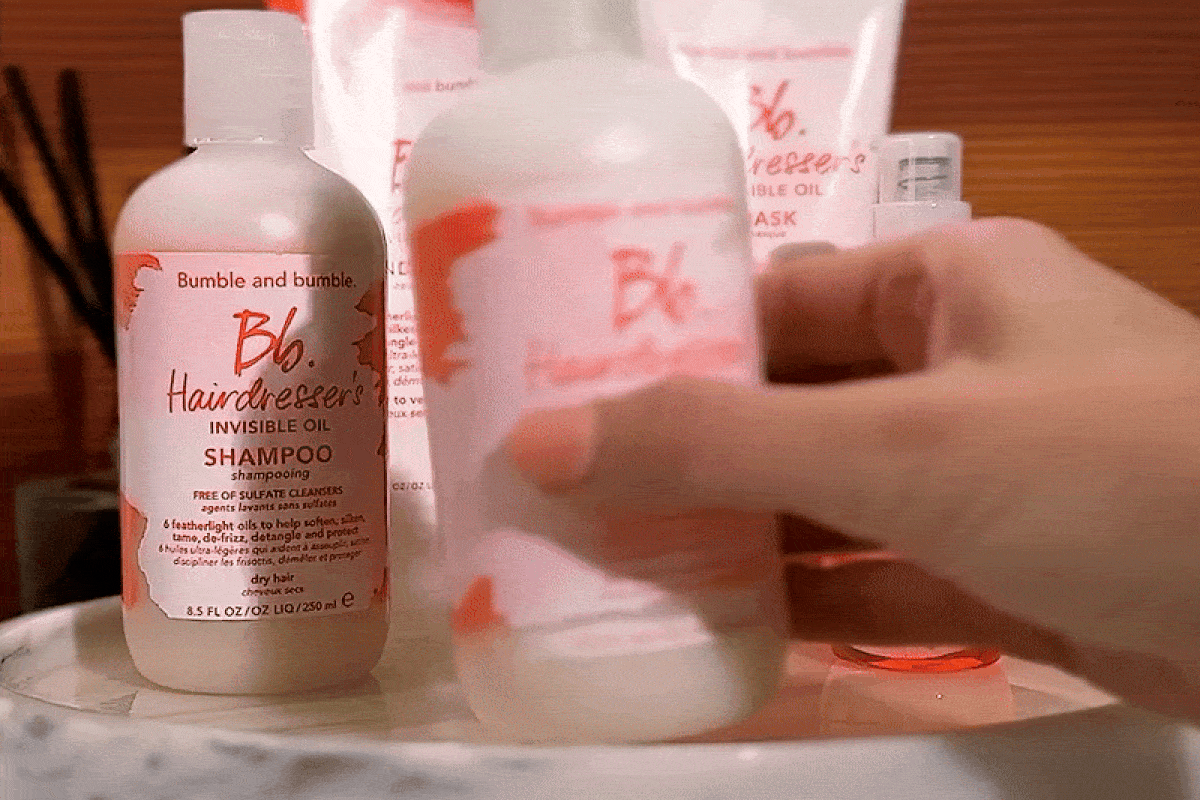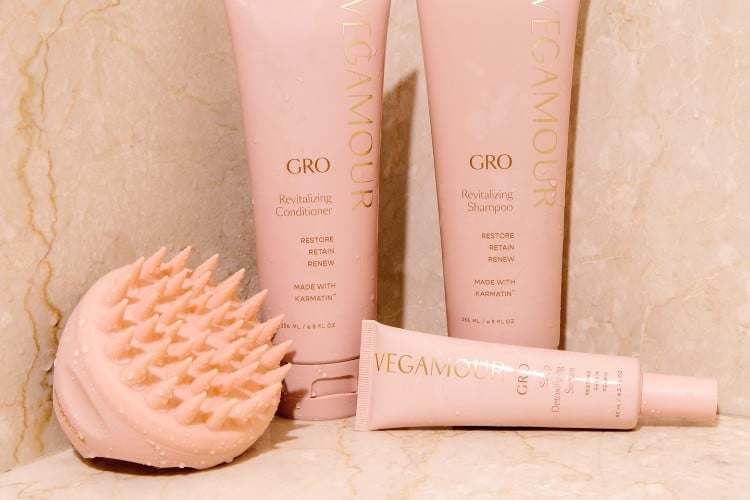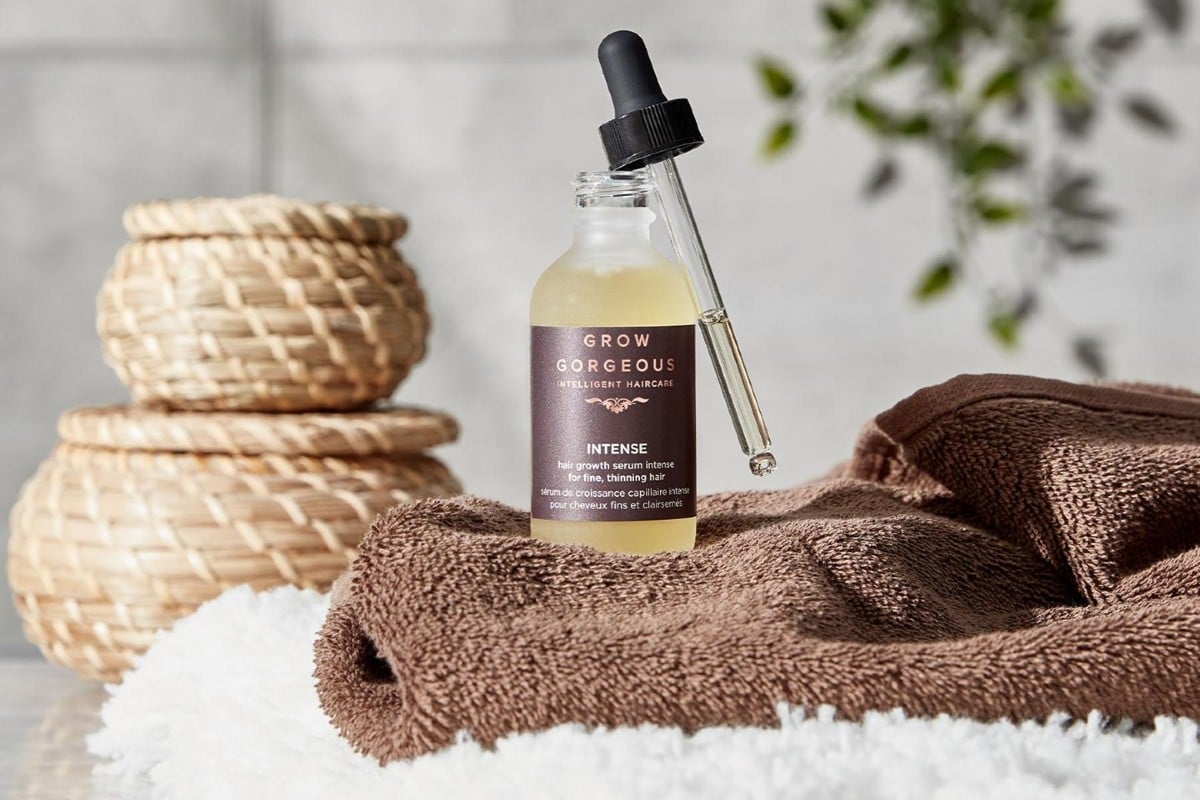Hair loss and DHT are two terms that are often associated. Because DHT is believed to be the leading cause of male-pattern baldness (or androgenic alopecia,) the condition most people suffer from, the need for something to block it from affecting hair caught everyone’s attention. That’s why some of the most effective treatments for hair loss, including finasteride, works by inhibiting DHT. Here we uncover the best natural DHT blockers and inhibitors that have real scientific evidence behind them.
What is DHT?
DHT (dihydrotestosterone) is an androgen that contributes to male sex characteristics, such as deep voice, facial hair, and muscles. DHT is converted in the body from testosterone with the help of an enzyme called 5-alpha reductase. It’s believed that DHT can bind to scalp receptors, shrinking hair follicles and weakening them, which often leads to pattern hair loss. Studies found that DHT is the first cause for the miniaturization of hair follicles in androgenic alopecia. The same studies confirmed that blocking the conversion of testosterone to DHT delays the progression of hair loss. That’s where DHT blockers come to help!
What is a DHT blocker?
A DHT blocker (or 5-alpha-reductase inhibitor) might be everything that holds antiandrogenic proprieties to block DHT from binding to 5-alpha reductase receptors, thus reducing testosterone conversion to DHT.
How natural DHT inhibitors help reduce hair loss?
Plant extracts, essential oils, and even vitamins can be intaken or topically applied to the scalp in order to inhibit 5-alpha reductase receptors and block DHT conversion. When absorbed into the skin, they enter the bloodstream and interfere with DHT activity at the hair follicle.
Because they’re not chemicals, natural DHT blockers tend to have fewer side effects and some even higher efficacity than finasteride, for instance. It’s important to use natural DHT blockers supported by scientific data. That being said, these are the best, most effective, and research-backed natural DHT inhibitors that help your hair grow thicker and healthier!
What are the best natural DHT blockers?
Saw palmetto
The extract of saw palmetto berries is probably the most researched natural DHT blocker. It’s known to have antiandrogenic activities, working as an inhibitor of 5-alpha-reductase responsible for the DHT conversion. Saw palmetto doesn’t lack scientific evidence on its functions to promote hair growth. Studies found that saw palmetto can reduce DHT binding capacity to androgen receptors by nearly 50%, giving slightly poorer results than finasteride. You can take saw palmetto orally in the form of supplements or whole berries, or you can apply it topically directly on the scalp.
Pumpkin seed oil
The pumpkin seed oil is another DHT inhibitor that is believed to block the action of 5-alpha reductase and have antiandrogenic effects — as studies suggest. Even though data about the impact of pumpkin seed oil on pattern hair loss exists, it’s very limited for now. During a placebo-controlled study, more than 70 people suffering from androgenic alopecia were given 400 mg of pumpkin seed oil per day for 24 weeks. The results showed an increase in hair count of 40%.
Rosemary Oil
A 2013 study found that rosemary oil can stimulate hair growth and reduce hair loss induced by testosterone levels. Rosemary oil was classified as an effective natural DHT blocker due to its ability to inhibit the binding of DHT to androgen receptors. Another study comparing the effects of rosemary oil with minoxidil on androgenic alopecia shows rosemary has similar effects as minoxidil and can increase hair count and thickness.
Green tea
You can also use green tea to nourish and boost your hair follicles to produce healthier hair. The benefits of green tea for hair growth are mostly attributed to epigallocatechin-3-gallate (EGCG), a polyphenol and the most abundant catechin in green tea that helps prevent and treat androgenetic alopecia by selectively inhibiting 5alpha-reductase activity. Research also found that EGCG may reduce testosterone-induced hair loss by increasing the androgen phase and slowing the telogen stage. Besides, green tea is an excellent source of antioxidants and can increase blood flow and oxygen delivery in the scalp, leading to better hair growth.
Red clover extract
One less-known fact about red clover (Trifolium pratense) extract is that it can fight androgenic alopecia. Red clover extract displays a high content of biochanin A, a flavonoid that studies point to being one of the most potent inhibitors of 5 alpha-reductase. As red clover extract is rich in biochanin A, it makes one of the best natural DHT blockers. Besides, this plant extract’s topical application has been shown to increase the anagen hair at an average of +13%. You may find the red clover extract in the composition of Capixyl, a breakthrough formula for hair growth.
Reishi (Ganoderma lucidum)
Reishi, also known as lingzhi, is a mushroom originally used in traditional Chinese medicine, thought to have many health benefits. One study explored the anti-androgenic effects of 20 different species of mushrooms, including reishi. Out of all of them, the extract of red reishi showed the strongest 5alpha-reductase inhibitory activity. It was found that reishi mushrooms significantly reduced levels of 5-alpha reductase, preventing the conversion of testosterone into more potent DHT.
Zinc
We all heard about zinc — a mineral found in food sources, necessary for many biochemical processes. These may include cell reproduction, maintenance of hormone levels, protein synthesis, and absorption of vitamins and other minerals.
It has long been claimed that zinc plays an important role in hair growth since a deficiency of this mineral is often associated with hair loss. However, a less known fact about zinc is that it acts as a 5-alpha reductase inhibitor, blocking the conversion of DHT. Studies suggest that zinc is a potent DHT blocker and a modulator of the balance between testosterone and DHT. Because the body cannot generate zinc on its own, it must be supplied through the diet or supplements for hair growth.
Fatty acids
Let’s not forget fatty acids. The healthy ones may possess anti-androgenic activities and may block the conversion of testosterone to DHT. Lauric acid, oleic acid, and linolenic acid (an omega-3 fatty acid) have been proven to inhibit 5-alpha reductase, contributing to better hair health.
Is DHT really the problem?
While DHT blockers help reduce hair loss caused by testosterone levels, they won’t deliver any benefit for those whose condition is not caused by high DHT levels. Most studies for natural DHT blockers were performed on pattern hair loss, and little to no data exists about their effects on other conditions such as alopecia areata or telogen effluvium.





